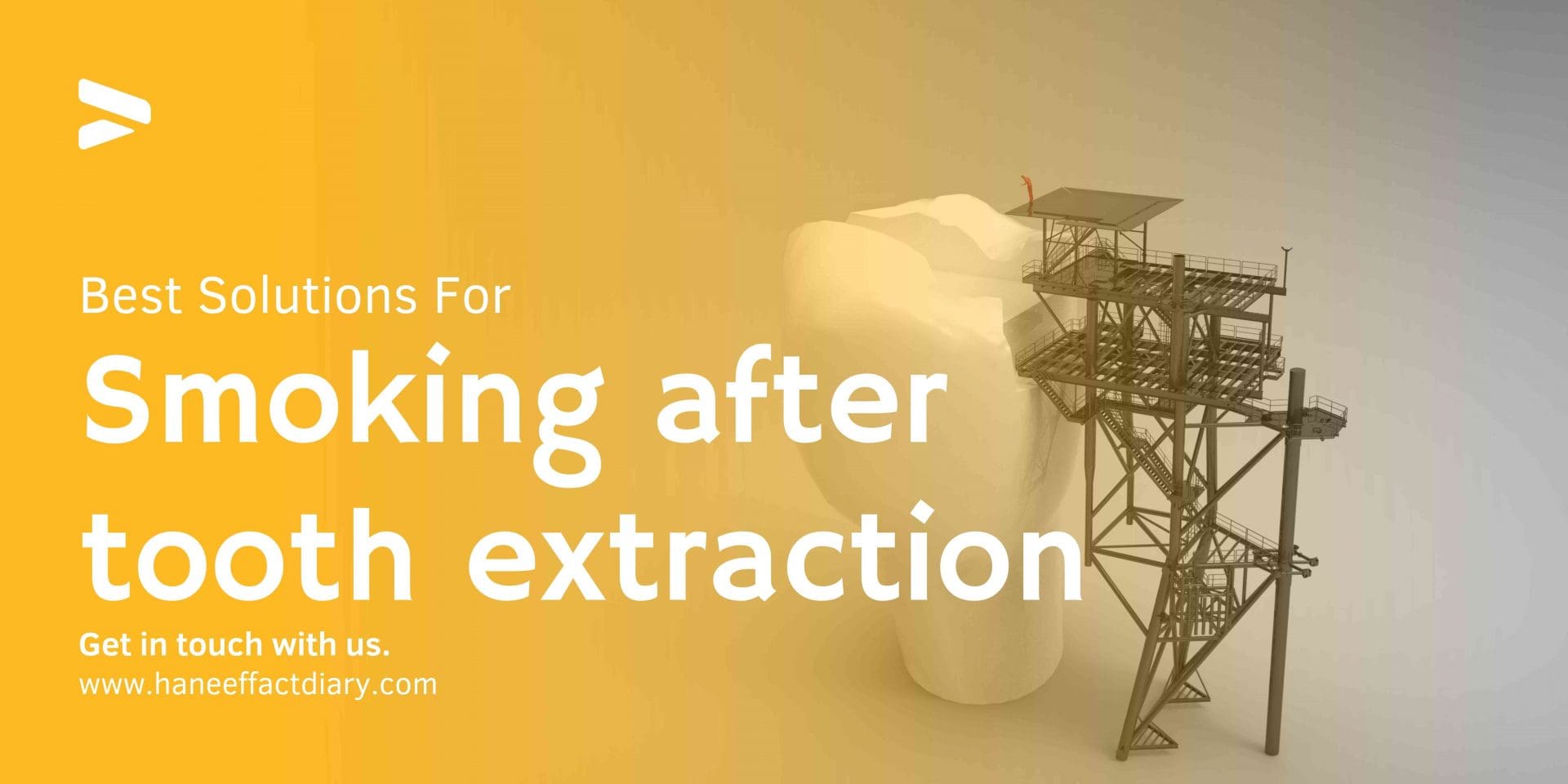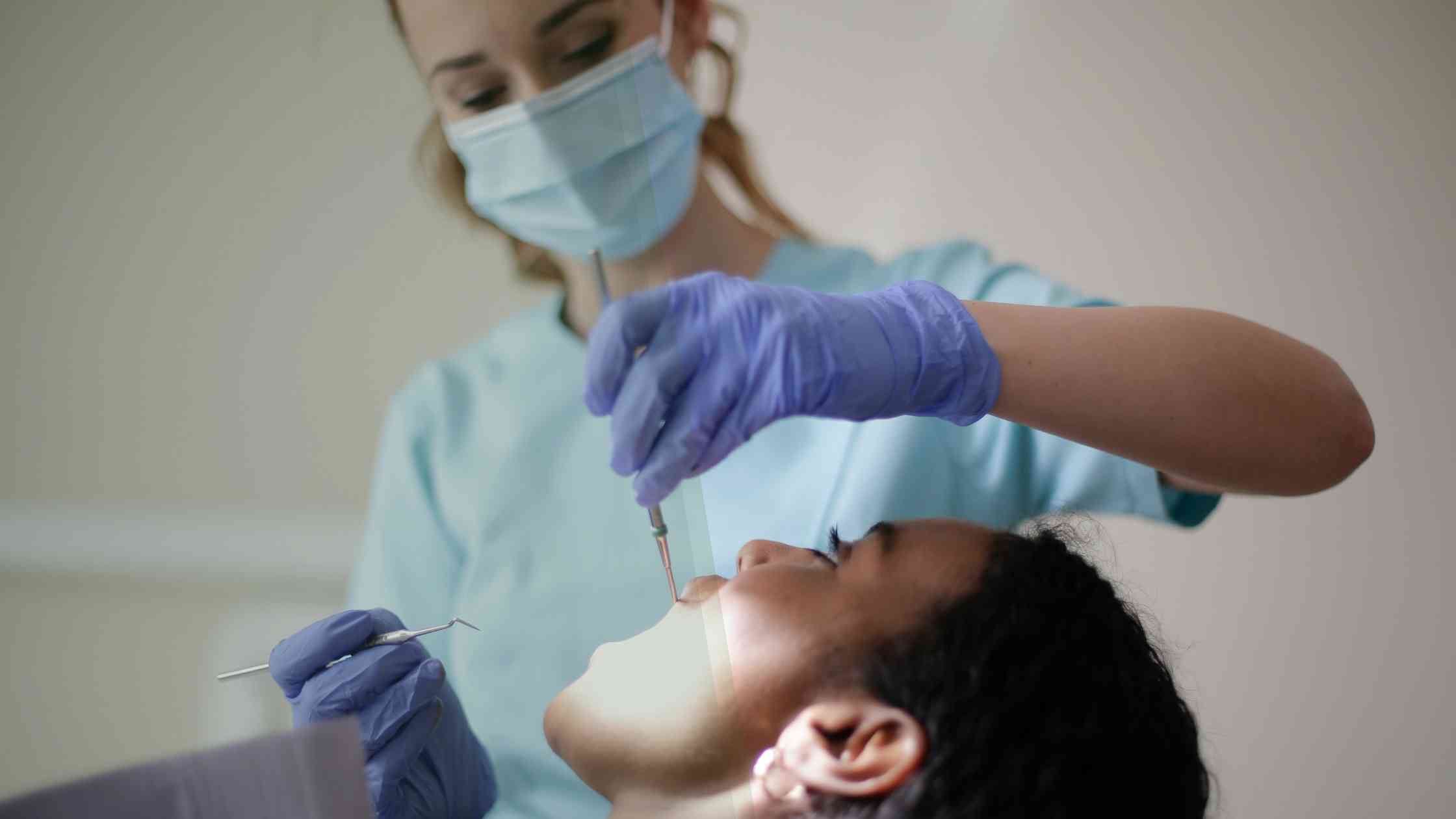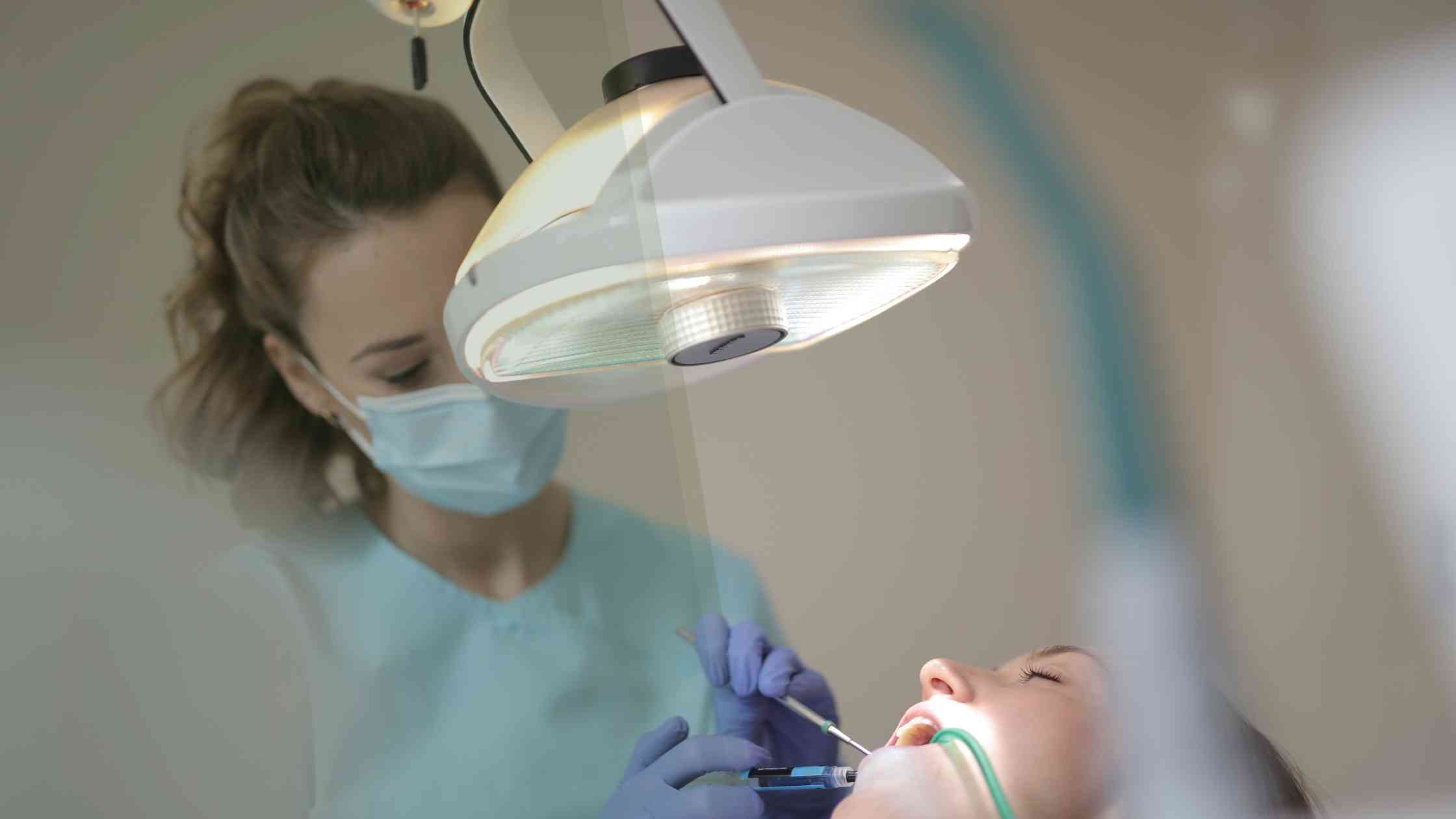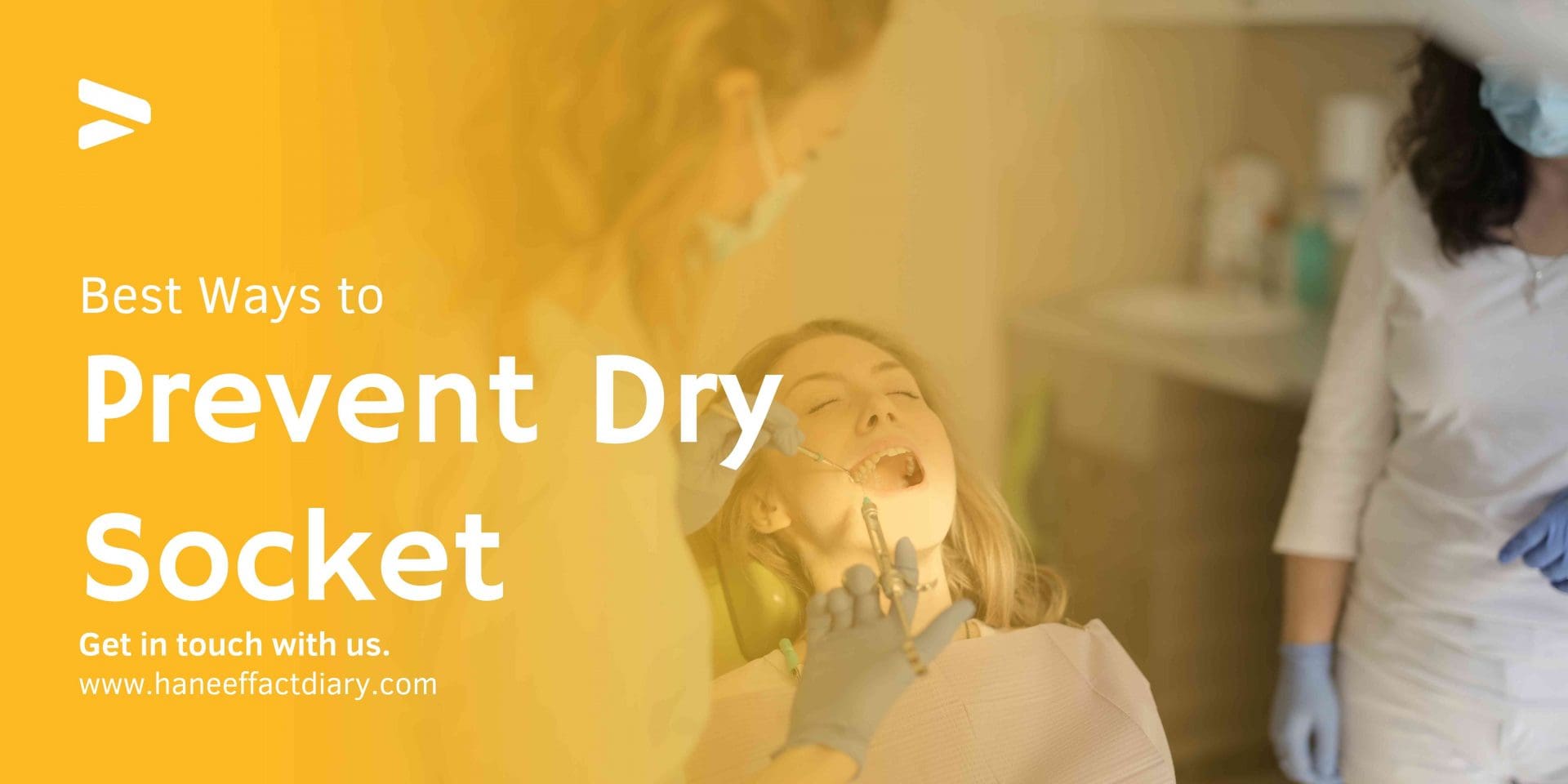
Smoking after tooth extraction, Smoking is an extremely harmful habit, however, there are instances where smoking cigarettes can add stress to your body, especially when you’re trying to recover. One example occurs after a tooth extraction.
Although the temptation might be there to smoke following the extraction of a tooth, it’s really a bad idea and could result in severe damage to the region of your mouth which is trying to heal, and your mouth in general.
The first step is to determine the reasons why a tooth should extract, and what motives for extraction are, and what can occur if a tooth was not extracted at the time it’s needed to be.
Why Would A Tooth Need To Be Removed?
There are many reasons why teeth may require extraction. The majority of the time, tooth extractions are an option last resort for a dentist and is sometimes avoided when an appointment is made by a dentist in time. A few of the reasons for the need for a tooth extraction include:
- The tooth is damaged to the point that it is irreparable.
- Dental decay and infections which cannot be fixed.
- Teeth that are in close proximity (often the case for Wisdom teeth).
If decay in the tooth is detected at an early stage the tooth could be saved. If teeth are damaged only to a lesser extent dental bonding could be an alternative. In the event that it is damaged beyond repair the tooth may require extraction to stop further damage from occurring.
If a tooth does not get removed it is at risk of more severe , and possibly permanent harm to the teeth around it gums, mouth, and mouth. The infection may even be spread outside the mouth and spread throughout the body.
In this regard, it is vital to see an experienced dentist as soon as there is any discomfort or swelling, especially if teeth are damaged or if swelling is occurring.
Aftercare
Care for your mouth is an essential consideration following a tooth extraction and it’s important to consult with your dentist regarding the steps you can do to ensure a swift and safe recovery. Some things to remember are:
- Avoid eating hard food to heal.
- Don’t suck through straws in the period of healing.
- Use pain relievers according to the recommendations.
Also, you should not smoke in the days following tooth extraction.
Why You Shouldn’t Smoke After Tooth Extraction

For smokers, who smoke for three days, quitting could be difficult however, it is vitally important to ensure a healthy recovery following an extraction. If you smoke after an extraction patients are at chance of slowing down the healing process as well as creating dry sockets and inflammation. Dry sockets could cause bad breath, making it difficult to open the mouth, and can cause more discomfort.
They may also expand which can cause further harm. Blood clots are crucial to heal and smoking may help expel the blood clots developing, causing delays in healing. It can also cause the development of dry socket. Be sure to wait minimum 72 hours following the tooth extraction before you smoke again.
Avoid smoking after tooth extraction. Instead, allow yourself time to heal and avoid developing new dental health issues that are that are caused by smoking.
Anyone who has to remove a tooth is not a good idea. A couple of days of swelling and pain that is followed by the discomfort of missing teeth isn’t something people would want to anticipate. However, for those who smoke who smoke, this dental extraction in the maple Grove in Minnesota experience can be incredibly challenging.
If your dentist is urging you to get the tooth removed due to one of a variety of reasons and you’re smoking regularly the dentist will suggest you to temporarily quit using tobacco immediately following the procedure. If you are a regular smoker it can be extremely difficult to stop for a short period of time smoking tobacco.
A dentist would suggest that smokers refrain from smoking tobacco for a minimum of 72 hours or 3 days following oral surgery such as extraction procedures.
Why Tooth Extraction
There are many reasons you might need to get the tooth removed. If your tooth has been damaged, caused by shifting of your other teeth or there are Wisdom teeth developing with problems, it could be necessary to have your tooth removed.
When your dentist advises you that you have to extract your tooth, it is crucial to be informed and prepared of all the details associated with the process of healing and that includes off smoking cigarettes and smoking for a short time.
Why Is It Important To Not Smoke After Tooth Extraction?
Cigarette smoke is a source of chemical toxins which can impede healing and pose danger for your mouth and gum tissues. When you are exposed to smoke, and your gums that are healing to these toxins, it could result in serious issues such as dry socket and inflammation or even infection.
- Dry socket: even though it sounds odd dry socket is actually a hazardous condition. This is the result from the exposure of bone and nerves underneath which have been exposed due to the removal of the tooth. Dry sockets can be detected by a sour smell and extreme pain that can radiate beyond the tooth socket across the entire face. the face. The socket may become inflamed and swollen. When you eat, and drinking or eating food that touches the socket, which is already swollen and exposed, can cause more discomfort. Dry sockets usually develop within 3 to 4 days after the procedure of removing teeth. If you can make it through three days without experiencing discomfort or signs of dry socket, you might be completely dry and well on the path to healing.
- The process of breathing in and exhaling air when smoking can lead to problems with newly formed clots. The formation the blood clots are a crucial stage in healing. In the event that a blood-clot breaks loose, it could result in dry socket. What causes this issue? The blood clot serves an important role in protecting the bone which covers newly exposed bone, and will never stop. The clot also serves as the basis of development for new tissues and bones inside the socket.
The short answer isn’t immediately, and instead, delay smoking following the teeth extraction-related savage for the longest time possible. For those who regularly smoke tobacco it can be very uncomfortable and unsuitable to stop using tobacco products following a tooth extraction.
Although quitting nicotine withdrawal is uncomfortable, the results of smoking near the sites of extraction are more painful and painful. Although it might not appear as if smoking cigarettes is excessively aggressive or risky, the frequent inhaling and sucking actions will strain your mouth.
The primary issue that is resulted from smoking is the suction action that occurs within the mouth to take in the smoke. The suction could dislodge the blood clot that has formed to ease the healing process of the extraction.
The blood an clot can be seen as the scab that forms over the area of the mouth. If the blood clot isn’t longer there to shield the wound. The wound is exposed to drying out or infected. A wound that is open within your mouth may cause bad breath.
The other issue that is raised due to smoking is the exhalation of smoke. The smoke exhalation could dislodge blood clots and cause dry socket. Dry sockets can be uncomfortable and causes pain and delays healing. The discomfort caused by the dry socket radiates out from the socket itself to the jaw, and also across the entire side of the face. It can be difficult when you open or close your mouth if you’ve got dry socket.
The third problem that is raised by smoking cigarettes is the smoke. It is not as if you are inhaling and exhaling regular air, but smoking is a mixture of many chemicals and other additives. Some of these substances, including nicotine, can be stimulants. They may cause an increase in blood flow and swelling. Nicotine can also reduce the oxygen levels in blood, which is a crucial part of healing from injuries.
Smoking less is beneficial to your oral health and overall health, however it’s especially crucial after the extraction of teeth or, for wisdom tooth extractions multiple tooth extractions.
It is important to talk with your dentist regarding your smoking habits prior to the extraction and after your dentist recommends that it is appropriate to resume your use. In most cases waiting until the extraction site heals is the best alternative to quit.
If you decide to quit or wait until healing process is fully underway aren’t options for you wait at minimum 72 hours or a complete three days following the extraction is perfectly safe.
The most effective ways to give yourself some time between the cigarettes and your extraction are engaging in an activity that will keep your hands busy such as crocheting or knitting, as well as smoking nicotine patches.
Nicotine gum or vaping equipment are not the best options to replace smoking. Nicotine gum is hard on your jaw because of the chewing motion and the introduction of nicotine into your mouth when there’s an open wound does not help in healing and reduce inflammation.
Vaping devices depend on the same methods that smoking cigarettes or a cigars do, so they might help reduce the amount of substances in your mouth but they cannot end the actual sucking and exhaling which can be dangerous.
Smoking Effects On Teeth
The heat generated by smoking as well as the chemicals in it can cause harm to your gums, teeth and soft tissues. Apart from discoloring your teethand gums, smoking tobacco can increase the risk of developing oral cancer. Despite these dangers it is understood that for some that smoking cigarettes is a hard habit to quit.
Smoking After Oral Surgery

As previously mentioned there are substances in the smoke from cigarettes that can harm gums and teeth. After a tooth extraction smoking cigarettes can raise the pain near the area where a tooth was removed. It also delays your healing time.
Additionally, the blood inside the body of smokers can hinder healing also. This is due to the fact that there is lower levels of oxygen in the smoker’s bloodstream. It’s because of the oxygen in blood that is pumped into the site of wounds which is responsible for the healing process.
If you smoke and require tooth extraction, contact All Needs Dental now to discuss the options available to you.
Smoking After Having A Tooth Pulled
When a tooth is taken out and a blood clot is formed at the site of extraction. The blood clot has to stay in place so that the wound heals in a timely manner. If the clot disintegrates too fast or is moved or moves, it could result in an issue called dry socket. It is a painful experience.
The clot could be easily moved away when smoking cigarettes. The sucking action that is used to draw smoke from the cigarette could pull on the blood clot. It can happen even when you smoke vapes or electronic cigarettes. Smoking cigarettes can contribute to the clot drying out or dissolving too quickly.
Other Possible Complications From Smoking After Tooth Extraction
There are occasions when a dry sockets may develop into an abscess. Abscesses can cause damage to more than the region surrounding a tooth. It could also affect the jaw bone too. Infection and bacteria is attacking healthy bone when there is an abscess which causes swelling and extreme discomfort.
Ask your dentist to talk about your smoking habits with you. Whatever you read on the internet, there is no safe methods of smoking any kind of product that you breathe in that won’t cause harm to your teeth or have an adverse impact on your oral health overall.
How Long After Tooth Extraction Can I Smoke A Cigarette?
It is typical dentists will advise to smokers not smoke after tooth extraction for a minimum of five days. If you can’t avoid smoking, you could face problems that could lead to expensive consequences. To ensure that your dental procedure will fully heal you owe it yourself to not smoke for a few days following dental surgery.
The Logistics Of A Tooth Extraction
It is important to understand that taking a tooth out is not something your dentist will ever want to do. They’re trained to do all possible to help you maintain the natural teeth you have.
If you’ve had an accident which caused damage to your tooth, there is no other option but to extract the tooth, which isn’t in the original plan. Also, if you’ve got an abyss, deep cavity or an advanced gum disease; any of these conditions could cause the removal from the tooth.
The Deliberate Healing Process
There are two ways to remove a tooth. The tooth is removed or, if the tooth has been affected, oral surgery is carried out to slice the tooth. Take a moment to think about the results. A tooth pulled is creating a gap in the gum line. A tooth that is affected may require sutures that close the gap up. In any case bleeding is likely and your dentist will need to use tension and gauze to stop the bleeding.
A blood clot eventually develops. It is essential to recognize the fact that the blood clot acts as the tool or vehicle that will aid in the healing process. It is important to follow the instructions for protecting the blood clot. Smoking cigarettes does nothing but damage the blood clot.
The Negative Implications Of Smoking On The Healing After A Tooth Extraction
Smoking cigarettes could lead to a variety of issues for the blood clot you have created. The first step is to wait at least for 24 hours prior to smoking cigarettes. The sucking action may cause the clot to dislodge and you’ll be back at the beginning. If the clot is eliminated, you’ll experience a painful and uncomfortable result, which is known as dry socket. You don’t want to feel this pain.
Smoking cigarettes can cause infection and can delay the healing process. According to the American Dental Association states that the healing process will take longer because of the reduced blood flow to the extraction site due to smoking. Tobacco products have proven to be harmful to the dental extraction area. It also hinders healing and increases the chance of infections.
Let The Healing Begin
There are many other factors that contribute that can help you heal efficiently and on time. It is recommended to limit your physical activity for 24 hours, as well in avoiding hot and alcohol-based drinks. It’s all about blood clots Remember? It is important to avoid rubbing the area of extraction when you clean your teeth.
Also, avoid foods that are hard and could cause the clot to be dislodged. The act of sucking any drink through straws is prohibited also. This is as harmful as smoking cigarettes. If you’re seeking reasons to quit smoking cigarettes, begin with the moment of the tooth extraction.
The Fundamentals With A Tooth Extraction
Dentistry has put forth an effort over the past few years to make every effort to ensure the health of all ones natural teeth. The tooth extraction could be due to an accident, or a diseased tooth, or an affected wisdom tooth that has to be extracted. A local anesthetic will be used to numb the region and then the tooth is removed.
It’s as easy as that. However, it can but it will leave a hole in the soft tissue. A wound that can cause bleeding. Pressure and gauze will over some time, stop bleeding. In the case of a tooth that has been damaged, there must be a cut within your gums in order to gain an access point to your tooth and remove it. Most of the time, sutures are used to close the hole. The hole will take some time for healing.
The Negative Effects Of Smoking After Tooth Extraction
The immediate effect is that the hole will develop an encasement of blood. The effects of inhaling cigarettes, or drinking a straw can break up the blood clot. It will then make the area of extraction back to the beginning. The bleeding will start, and then you’ll start over. There is a chance that you could get dry socket. This is an extremely uncomfortable side effect that you should avoid.
After 72 days, it will be permissible to breathe again without removing the blood clot. The longer-term negative impact is that smoking tobacco can cause an infection that can delay recovery. According to the American Dental Association has proven that tobacco products cause a hazard for the tooth extraction site and can slow down your healing. The flow of blood to the area of the extraction is reduced, delayed , and reduced as a result smoking.
The Right Way To Heal From A Tooth Extraction
It is recommended to stay away from all physical activity for the duration of up to 24 hours, and be sure to stay away from alcohol and hot drinks. This is about the sensitive blood clot. It’s still important to clean your teeth, but you’ll need to stay clear of that extraction area. It is recommended to stay clear of foods that are hard and don’t take a drink or malt by using straws.
Consider other health-related methods and the steps taken. The same applies to your mouth. Be sure to do it correctly first time. If you’re trying to find a reason to quit smoking, this could be an ideal place to begin. If not, you should plan out how you are going to manage by not smoking for the next 72 hours.
If you experience this the dentist may suggest surgery to remove them. Removal of the wisdom teeth can be popular, and recovery may be as long as one week, based on the particular situation. Recovery can be longer when the wisdom teeth are affected. It means they aren’t erupting from beneath the gums and aren’t evident.
The day you have your operation

Wisdom extraction of teeth is an outpatient procedure, meaning you’ll be in and leave the dental center the exact same day. If you receive local anesthesia or sedation in the course of surgery, you’ll most likely be awakened inside the dentist’s chair. But, if you’re treated to general anesthesia it will take longer to wake up, and you’ll be transported to a recovery area.
It’s possible that you don’t recall how you got in the dentist’s chair until you reach the treatment room. Ask your dentist about the type of sedation they recommend.
The feeling will gradually return inside your mouth after you recover from the surgery. A little swelling and pain is normal. On the first day, your recovery may also have bleeding from your mouth. It is possible to start applying an cold compress for your mouth at any time you’d like. Additionally, you’ll receive instructions on when and when to use medications, whether prescription painkillers or over-the-counter.
You’ll be home after you get up and are at ease. It’s a great idea, though not required to let someone else take your to your home. Your dentist may require this, particularly in the event of general anesthesia because you won’t be allowed to drive for a long duration of time.
It is possible to eat soft food after surgery, but you should avoid drinking, caffeine, or alcohol as well as smoking. Also, you should be careful not to use a straw. This can cause issues.
Lang-term Recovery
The majority of patients fully recover from wisdom tooth procedure in 3 to 4 days. If your teeth are impacted or were placed at an unnatural angle, it can take up to a week to heal.
The scar left by surgery will not be fully healed for a few months, which means there is a chance of developing an infection a few weeks after the surgery. Make sure you take good care of yourself and be aware of any indications of discomfort.
You are able to resume your normal everyday activities the next day following surgery, but be cautious about any activity that may cause dislodgement of stitches or coagulate blood on your wound. This includes but isn’t the only thing:
- vigorous exercise
- smoking
- spitting
- drinking through straws
Some swelling, pain and bleeding are normal following the removal of wisdom teeth. Contact your dentist right away if the bleeding or pain is too intense and uncomfortable.
The symptoms you experience should be significantly ameliorated on the third day following surgery. The bleeding and pain should be eliminated within a week after surgery.
A few issues could be an indication of nerve damage or an infection. Consult a doctor if you have any of the following symptoms:
- difficulty breathing or swallowing
- febrile
- The medication is not effective in dulling the pain
- swelling, which gets worse with time
- Numbness
- pus or blood leaking from your nose
- bleeding that continues to flow even after you attach gauze to it and apply pressure
Home care
It is crucial to take good care of taking care of your mouth once you return home to avoid infections and other complications. The dentist, or the oral surgeon provide precise instructions on how you can take care of your mouth and keep it clean following surgery. This could be the sole occasion when your dentist advises you to not brush or rinse or floss for the entire day.
Common cleaning guidelines comprise:
- Rinsing the wound with salt water will keep the wounds clean. Do not spit out the water as you rinse. Instead, place your mouth on the basin and watch the water fall.
- Dab gently on the area with gauze to help absorb blood.
You’ll be able to return to your normal routines within a couple of days after the surgery. It is important to be cautious not to rip off the blood clot or stitches for the duration of a week. Like all scabs, the blood that flows over the wisdom tooth’s hole protects as well as heals your wound.
If the clot in the blot gets broken, you’ll be in greater pain and have an elevated risk for developing infection. If this happens it’s referred to as dry socket. dry socket. Dry sockets can be found in socket through one or all the wounds.
Things to avoid while recovering are:
- anything that could cause dislodgment of the stitches or blood clots
- smoking
- spitting
- drinking through straws
Also Read:
Best marquette equipment finance 2022
Best Ways to know Naylors finance 2022
Selective invoice finance 2022
Management of pain
The primary methods to alleviate swelling and manage pain can be achieved by ice therapy and taking pain medications. Request your dentist’s advice regarding how often you should use an Ice packs for your face. Don’t apply ice directly to your face as it could cause the risk of a burn. They’ll also advise you to use prescription or non-prescription medications.
It is also possible that you will be advised to take antibiotics during your recuperate. This will help prevent oral infections when your mouth is susceptible to bacteria. Make sure you take the entire course of antibiotics according to the instructions of your dentist.
Foods to eat as well as foods to stay clear of
Being hydrated and eating a balanced diet is crucial for healing, even although you may not have a great appetite immediately following surgery. Consult your physician for specific guidelines on what you should consume during the initial days after recuperation. Choose a food item that is easy to take in without much chewing and foods that won’t disturb the blood clots or stitches.
Begin with soft foods beginning with like:
- cottage cheese
- apple sauce
- pudding
- soup
- mashed potatoes
- Smoothies
If you eat, be sure to do not eat:
- extremely hot food items that can be extremely hot and cause burning to the site of the procedure.
- seeds or nuts that can become stuck in the hole that your wisdom teeth were
- drinking out of a straw or drinking too fast from a spoon could dislodge the blood clot or damage stitches
Begin slowly eating more hearty food as you are well.
Outlook
Wisdom extraction of teeth is a regular procedure that can fix or prevent issues in your final pair of molars. It is possible to eat soft food and resume your regular everyday activities following surgery.
The healing process following wisdom teeth surgery can take up to three days, but it could last for the duration of a week or longer. It’s crucial to follow the instructions for home care from your dentist to help speed the healing process and to avoid infections.
How Smoking Leads to Complications
In addition to the habit of smoking tobacco, which can disrupt an healing procedure, the usage of tobacco products in conjunction with oral surgery may delay heal time and also increase likelihood of complications.
The reason for this is that the chemicals found that are present in cigarettes and other types of tobacco can hinder or delay healing, as well as can cause contamination of the area where the wound was. It is recommended that the Mayo Clinic The Mayo Clinicsuggests that smokers or users of tobacco, you should not do it until at the very least, 48 hours following surgery and for until you are able to afterwards.
How Does Smoking Increase Dry Socket Risk?
Smoking also increases your chance of developing a specific type of tooth extraction complication known as dry socket. What is dry socket? When a tooth is removed there is a blood clot that forms inside the socket to safeguard the nerves and bone and promote healing.
If something interferes with or delays the process of dislodging the clot, (such for instance, the physical process of sucking on a smoke) the pain may be intense. occur within a couple of days following the surgery.
The pain could extend beyond the socket to your eye, ear or neck. You might notice a sour flavor in your mouth or bad breath, and an occasional fever. In a mirror you might only see an empty space: this is known as dry socket.
If you are experiencing some of the above symptoms you must consult your dentist. He is required to scrub the socket and apply the area with a medicated dressing. They could also provide you with antibiotics, pain medications and specific instructions on how to care for your mouth at home.
Quitting Smoking
Although it’s natural to want to avoid any further complications once having your wisdom teeth removed, if you’re smoking, quitting smoking can be difficult. It’s possible that you’ll want to stop smoking cigarettes following surgery, however the nicotine addiction that smoking cigarettes brings makes it difficult.
If you’re aware that you’re about to have wisdom teeth removed It’s a great reason to kick the habit! There are many sources that can assist you in managing cravings and effectively quit smoking. This is essential for a successful recovery from wisdom tooth extraction. It is also the best option for your body in general.
In order to help heal your tooth quicker, you should limit your activity , and avoid drinks that are hot, alcohol as well as hard food items, and obviously smoking. Do not clean the area during at least the the first 24-hour period and ensure that you’re using a soft-bristled brush.
If you feel that something’s not the way you’d like it to be post-surgery, do not be afraid to speak with your dentist. If you take the proper care – – and non-smoking! Your recovery will be smooth and you’ll be back smiling within a matter of minutes.
Careful dental hygiene is essential, as you don’t want to cause irritation to your mouth therefore you should not brush flossing, cleaning your mouth and using mouthwash. The warm water is perfect to keep your mouth clean all day long and can be very relaxing too! When you rinse, don’t make a spit-up that is forceful instead let the water to flow out of your mouth and into the sink.
The pink hue of the water that has been sucked out is normal on the first day. However, a large portion of your suggested restrictions will include smoking cigarettes and smokeless tobacco. In the initial 24-72 hours you’ll have to be careful not to use straws when drinking beverages.
The recommended time to smokers after extraction of at minimum 72 hours. While this might sound difficult however, the chemical toxins that are found in smoke from cigarettes can trigger inflammation and slow healing. Smoking too much following an extraction may result in dry socket.
Dry socket is an unpleasant condition where the blood clot, which has formed recently, is dissolved and allows bones and nerves beneath to come out. Dry socket pain may extend to your face and the ear, but it’s not a localized problem. Other signs of dry sockets are bad breath or a foul flavor in the mouth.
There is no cure for dry sockets other that irrigation of the socket and pain relief medications to alleviate the discomfort. If you’re unable to manage the pain with non-prescription pain relief Your Oral Surgeon might suggest a new prescription.
Smokeless tobacco could be a viable alternative, but you’ll be avoiding them also. Smokeless tobacco particles could be deposited in new extraction sites, causing irritation, or in the worst case it can cause infections.
The degree the degree of pain and pain that you feel following surgery may vary dependent on your individual degree of pain tolerance as well as how well you adhere to the Oral Surgeons post operative instructions.
Any swelling that occurs will be rid of within 7-10 days. Avoiding smoking as long as you can will reduce swelling, and smoking can cause inflammation. Certain patients might view oral surgery as a chance to give up smoking completely.
Three days of smoking no cigarettes is an excellent start and could be a significant motivation to begin the new lifestyle you want to live.





